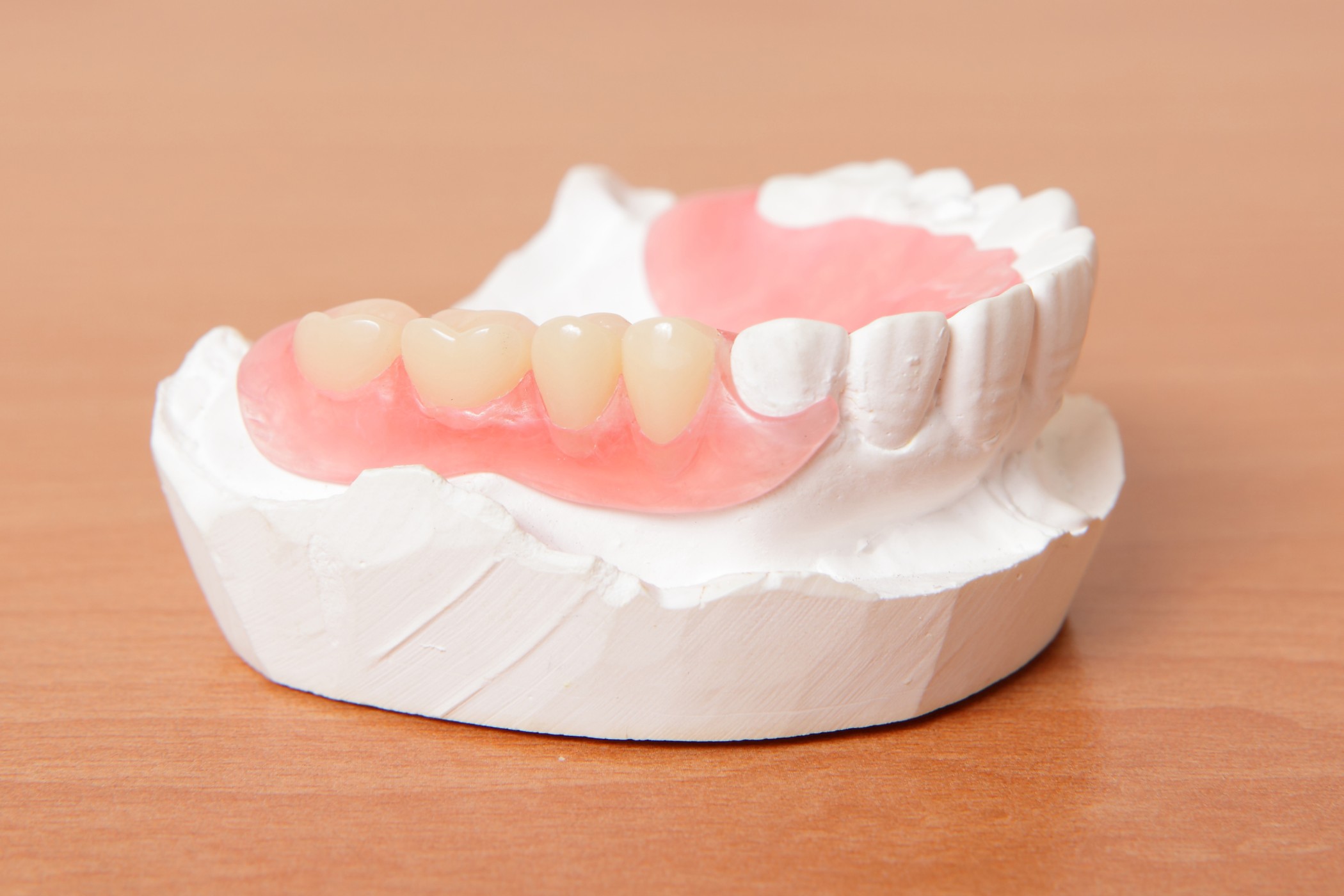Book an Appointment
If you are looking for a dentist in Ipswich, The Dental Practice Ipswich would love to hear from you.
Full and partial denture

Conventional Full Denture.
A conventional full denture is placed in your mouth after any remaining teeth are removed and tissues have healed. Healing may take several months, during which time you are without teeth. The process of construction can involve few steps and appointments and may take 4-6 weeks to complete.
Immediate Full Denture.
An immediate full denture is inserted immediately after the remaining teeth are removed. (Your dentist takes measurements and makes models of your jaw during a prior visit.) While immediate dentures offer the benefit of immediate replacement, they must be relined several months after being inserted .The reason for that is that the bone supporting the teeth reshapes as it heals and gums reduce causing the denture to become loose. Immediate dentures should generally only be considered as a temporary solution until conventional dentures can be made.
Partial Denture.
A partial denture rests on a metal framework that attaches to your natural teeth. Sometimes crowns are placed on some of your natural teeth and serve as anchors for the denture. Partial dentures offer a removable alternative to bridges.
FAQs
1. What are the benefits of dentures?
Dentures provide several benefits, including:
- Improved appearance and smile
- Enhanced ability to chew and speak
- Support for facial muscles, preventing a sunken appearance
- Increased self-confidence and quality of life
2. What is the process for getting dentures?
The process typically involves several steps:
- Initial Consultation: We assess your oral health and discuss your denture options.
- Impressions: We take precise measurements and impressions of your mouth.
- Model Creation: A model of your dentures is made and adjusted as needed.
- Fitting: Once the dentures are ready, we fit them to your mouth and make any necessary adjustments.
- Follow-Up: Regular check-ups ensure the dentures fit well and are comfortable.
3. How long do dentures last?
With proper care, dentures can last 5 to 10 years. Over time, they may need adjustments or replacements due to normal wear and changes in the shape of your gums and jaw.
4.How do I care for my dentures?
Proper care includes:
- Removing and rinsing dentures after eating
- Cleaning your mouth and gums daily
- Brushing dentures daily with a non-abrasive cleaner
- Soaking dentures overnight in a denture-cleaning solution
- Regular dental check-ups for professional cleaning and adjustments
5. Can I sleep with my dentures in?
While it’s possible to sleep with dentures in, it’s generally recommended to remove them at night. This allows your gums to rest and helps prevent infections and sores.
6. Will dentures affect my speech?
Initially, dentures may affect your speech, but most people adjust within a few weeks. Practicing speaking aloud and reading can help speed up this adjustment period.
7. What should I do if my dentures feel uncomfortable?
If your dentures cause discomfort or sore spots, schedule an appointment with us. We can make adjustments to improve the fit and comfort of your dentures.
8. Can I eat normally with dentures?
It may take some time to adjust to eating with dentures. Start with soft foods and gradually introduce harder foods as you become more comfortable. Chewing slowly and using both sides of your mouth can also help.
9. Are there alternatives to dentures?
Yes, alternatives to dentures include dental implants and fixed bridges. These options provide more permanent solutions for missing teeth but may not be suitable for everyone. We can discuss the best options for your specific needs during your consultation.
10. How much do dentures cost?
The cost of dentures varies depending on the type and material used. During your consultation, we will provide a detailed cost estimate and discuss payment options and insurance coverage.
11. What if my dentures break or become damaged?
If your dentures break or become damaged, contact us immediately. Do not attempt to repair them yourself, as this can cause further damage. We offer denture repair services to restore their function and appearance.
12. Can I use denture adhesive?
Denture adhesive can help improve the stability of your dentures. However, well-fitting dentures should not require adhesive. If you find yourself relying heavily on adhesive, schedule an appointment for an evaluation.
13. How often should I visit the dentist with dentures?
Regular dental check-ups are important to ensure your dentures fit well and to monitor your oral health. We recommend visiting at least once a year or as advised by your dentist.
14. Will my dentures look natural?
Modern dentures are designed to look natural and blend seamlessly with your facial features. We work closely with you to ensure your dentures provide a natural and aesthetically pleasing appearance.
